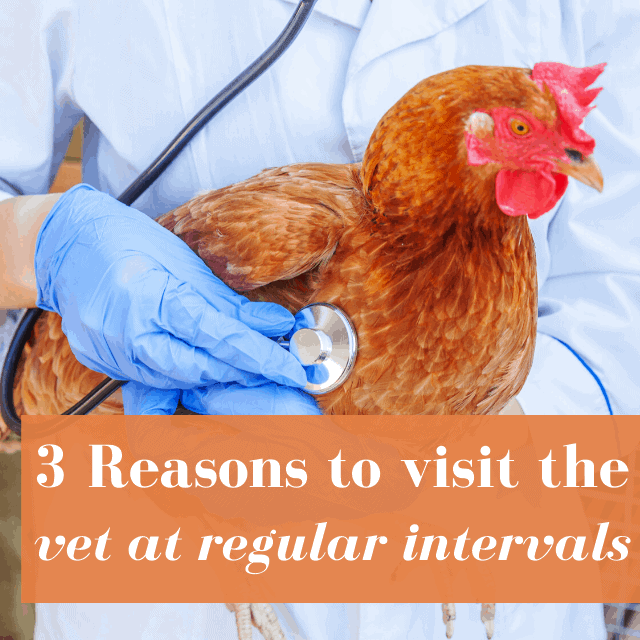Does my pet have allergies?
That’s a question you may find yourself asking if you have noticed symptoms of allergies in your pet.
As springtime comes upon us, many of us also start getting the ills of our springtime allergies- sneezing, itchy eyes, running noses, and sore throats. Well, guess what? Just like us, our pets can suffer from allergies, too!
Pets with allergies can have mild symptoms to severe symptoms. Some are similar to those which we suffer from, and some are different. The good news is, there are treatments available that provide relief to your pet, which we will discuss below.
Table of Contents (Quickly Jump To Information)
How Common Are Allergies in Dogs?

Allergies are just as common in dogs and other pets as they are in humans. Allergies are most common in dogs older than six months of age, with most affected dogs being a year or two old (or older). They can occur in dogs of all breeds and backgrounds, so there’s no getting around it – you probably won’t be able to select a dog that is “allergy-free.”
There are several types of allergies, with allergy symptoms ranging from severe to mild. Your dog might have environmental allergies, flea allergy dermatitis, or food allergies.
Symptoms of allergies may mimic those that are found in the human immune response, too, like a stuffy nose, atopic dermatitis, secondary skin infections, chronic ear infections, and eye drainage. Although there is no cure for allergies, an allergy in pets can be treated just as easily as can the symptoms of people with allergies.
Signs of Pet Allergies:
Pets with allergies may have one or more of the following signs:
- Itchy skin
- Itchy ears
- Hives
- Sneezing
- “Reverse sneezing”
- Runny nose
- Eye drainage/Irritated eyes
- Respiratory symptoms
- Allergic dermatitis
Itchy skin and ears are the most common signs of allergic reactions in pets. Pets with allergies usually develop a lot of inflammation in their skin, which causes them to itch and scratch with intensity. The itching is usually worse at night when they are relaxed and not focused on anything else. This can often cause you to lose sleep if your pet is up scratching all night.
Unfortunately, one of the most dangerous effects of allergies in pets is that all that itching can sometimes lead to other problems, like inflamed skin, a secondary infection like bacterial infections, and bleeding.
Some pets with allergies, particularly those reacting to environmental allergens, may just have some sneezing or what we refer to as “reverse sneezing”. This is more common in dogs. They will get themselves into a fit and it almost looks like and sounds like they are snorting or wheezing and trying to breath with fierce effort. They usually are back to normal within a few seconds to one minute.
Causes of Allergies

Pets can have allergies from many different things. Some of the common causes of allergies in pets are:
- Pollen (all different kinds)
- Food
- Fleas
- Detergents, shampoos, things they may come into contact with
- Vaccine reactions
Environmental (seasonal) allergies are usually caused by various types of pollens that are floating around in the air. This is usually at its worst in the springtime and the fall. However, some pets are more sensitive to certain pollens that come out in the summer and/or winter. Allergies caused by pollen can result in any or all of the signs of allergies, including itchy skin and ears, sneezing, runny noses, and irritated eyes.
Food allergies usually cause itchy skin and occasionally problems with digestion (vomiting and diarrhea). The cause of the food allergy is usually due to the protein source within the food (some of the most common food allergens are chicken, pork, or beef). Some pets may be allergic to the carbohydrate source (rice, potato) or even to a particular dye within the food that makes it look a certain color.
Finally, some pets may have an allergy to certain shampoos, conditioners, or even detergents you may use for their bedding or your bedding.
How to Tell if Your Dog Has Seasonal Allergies vs. Food Allergies
It can often be challenging to tell if your dog is suffering from a seasonal (environmental) allergy or a food allergy. Of course, the easiest way to tell if it’s a seasonal allergy is if the symptoms come and go with the changing of seasons.
But if you notice that your pet is sick pretty much year-round, there’s a good chance it’s a food allergy. Remember that even if you haven’t changed your pet’s food, he may suddenly start showing a sensitivity or allergy anyway. This often occurs when manufacturers change ingredients in a dog food, eliciting a reaction in dogs who were previously fine.
What is a Flea or Insect Bite Allergy and How Is It Treated?
Just as humans can react badly when they are bitten by insects, so, too, can dogs. Insect bite allergies are nothing more than exaggerated inflammatory responses to insect bites or stings, such as bees, ants, mosquitoes, fleas, and deerflies. All of these can cause reactions in sensitive pets. Flea saliva is one of the most common insect allergens.
Even though fleas usually cause itching, pets with flea allergy really tear their skin up way more than a pet that doesn’t have a flea allergy. If your pet has a flea allergy, their skin will be very red and inflamed even though you may not visibly see fleas walking around on them. They will have incessant itching even with just one or two fleas on them.
Are Allergies Inherited?
Again, as with humans, there might be some evidence to suggest that allergies are genetic. Dogs might be more likely to have allergies, especially allergies to pollens and plants, if one or both of their parents also suffered from allergies.
Does My Pet Have Allergies? When to Call the Vet

If your pet just as a mild itch or occasional sneezing, it is fine to wait it out to see if your pet is able to get through their allergy season on their own. Do not give into temptation to give your pet any human allergy medications, especially the ones with decongestants in it, as these can be very toxic to your pet.
Here are some reasons you should schedule an appointment with your vet:
- If your pet begins scratching their skin every time they are at rest
- if the need to scratch is interfering with their normal daily activities
- if they feel down and out and don’t even have the energy to eat their normal amount of food
- if you are seeing bumps, scratches, or a lot of redness on their skin
- if they are losing fur
It’s important to get your pet into the vet sooner rather than later because as your pet starts tearing up their skin they can develop secondary bacterial and/or yeast infections. The earlier the itch is treated, the better chance you have at getting it under control with prescription medication or allergen-free pet food without further complications.
How Are Allergies Diagnosed and Treated?
Your vet can examine your pet to look at their pattern of itch and skin irritation. This can help guide them in offering you some advice on what the underlying cause of your pet’s itch may be. Then, they can work with you to develop a short-term and long-term treatment plan. Depending on what your vet sees on your pet, they may prescribe or recommend one or multiple of the following treatments:
- anti-itch medication (there are so many options available these days for our pets!)
- special shampoo
- antibiotic
- antifungal medication
- ear drops
- eye drops
- fish oils
- medicated skin wipes
- flea prevention medications
- restricting certain foods from your pet’s diet
- prescription food
- food trial
- allergy testing and allergy shots
Allergy shots, in particular, are extremely effective as allergy treatments for dogs.
Overall, 60 to 80 percent of dogs with environmental allergy will respond very well to allergy shots, often eliminating the need for other medications the pet may have been given to control signs…Young dogs may respond better to immunotherapy than do older dogs.
Dr. Scott Miller, College of Veterinary Medicine at the University of Illinois at Urbana-Champaign
Working with your vet is the best way to get your pet’s itch under control. Sometimes it will be through trial and error, while other times it may be very straight forward and an easy fix. Keeping an open mind and understanding that allergies can be very frustrating to truly get under control will help you through this process.
What Can I Give My Dog Naturally for Allergies?
Often, allergy medications are the best treatments for dogs who are suffering from allergies. In some cases, though, you may be able to try more natural treatments to get your dog’s allergies under control. Do this only under the advisement of a veterinarian, but you may want to consider a natural remedy of omega-3 fatty acids.
Other natural remedies to try include:
- Apple cider vinegar
- Epsom salts
- Oatmeal baths
- Yogurt
- Vitamin E
- Coconut oil
There are even special shampoos, like hypoallergenic shampoo and conditioner products, that can help treat severe body-wide itching so you don’t need to rely on topical or oral medications to treat the skin condition. Sometimes, isolating common ingredients in your dog’s food that might be triggering a gradual reaction can be helpful. By conducting a simple “diet trial” in which you eliminate that single food ingredient, you may be able to relieve some of the most typical signs of allergies.
Here is more information on how the diet trial works:
The “gold standard” or best method that we currently have, for diagnosing food allergies is the dietary elimination trial. This means feeding your pet a diet purchased through a veterinarian or carefully made at home that contains only a few ingredients (typically one protein and one carbohydrate plus necessary fats, vitamins, and minerals) that your pet has never been fed before or that are hydrolyzed (where the proteins are broken down into very small pieces that can hide from the immune system) or purified to remove the parts that are likely to cause allergies. This diet is then fed as THE ONLY FOOD OR FLAVORED THING TO GO INTO YOUR PET’S MOUTH for at least a month but potentially several, depending on your pet’s history and type of issues. If your pet’s signs dramatically improve during the trial, then to confirm a food allergy, your pet then has to go back to the old diet again. A quick relapse is suggestive of an allergy to an ingredient in the old diet.
Clinical Nutrition Team at Tufts University
What Are Other Causes of Gastrointestinal Signs or Skin Issues in Pets?

One of the reasons why it is so important to seek out veterinary help when treating your pet’s allergies is to make sure that it’s allergies causing his woes, and not some other condition. There are lots of other medical conditions, from mild to more severe, that can cause similar symptoms.
For example, classic signs of digestive problems might not be related to a food allergy but could instead by related to eating poor-quality food, ingesting chemicals, an obstruction in the digestive tract, or some kind of injury to the digestive tract.
Similarly, skin issues can also be called by parasitic, bacterial, or fungal infections. They could have sarcoptic mange or a wide variety of other issues.
Therefore, it’s important to always get a professional opinion before you attempt any medical treatments yourself. While pet allergies aren’t usually serious, there is no point in making your pet suffer unnecessarily. Help him get the treatment he needs – scratches and sniffles, be gone!
Related Articles:
- How to Keep a Pet From Wriggling When Giving Medicine
- How Often Should You Bring Your Pet to the Vet?
- How to Stop a Dog from Attacking Other Pets
- Is Nasal Discharge and Sneezing in Pets a Bad Sign?
Leslie Brooks graduated from the University of Tennessee College of Veterinary Medicine in 2012. After graduation she did a one-year intensive rotating clinical internship, with rotations in various specialties. She has been working in small animal clinical medicine ever since and ran her own house call practice for three years. She currently lives in Indiana with her husband, son, and cat named Callie. She spends much of her free time volunteering in the community, from Meals on Wheels to working with pets of the homeless and vulnerable. She also loves to travel and read.





